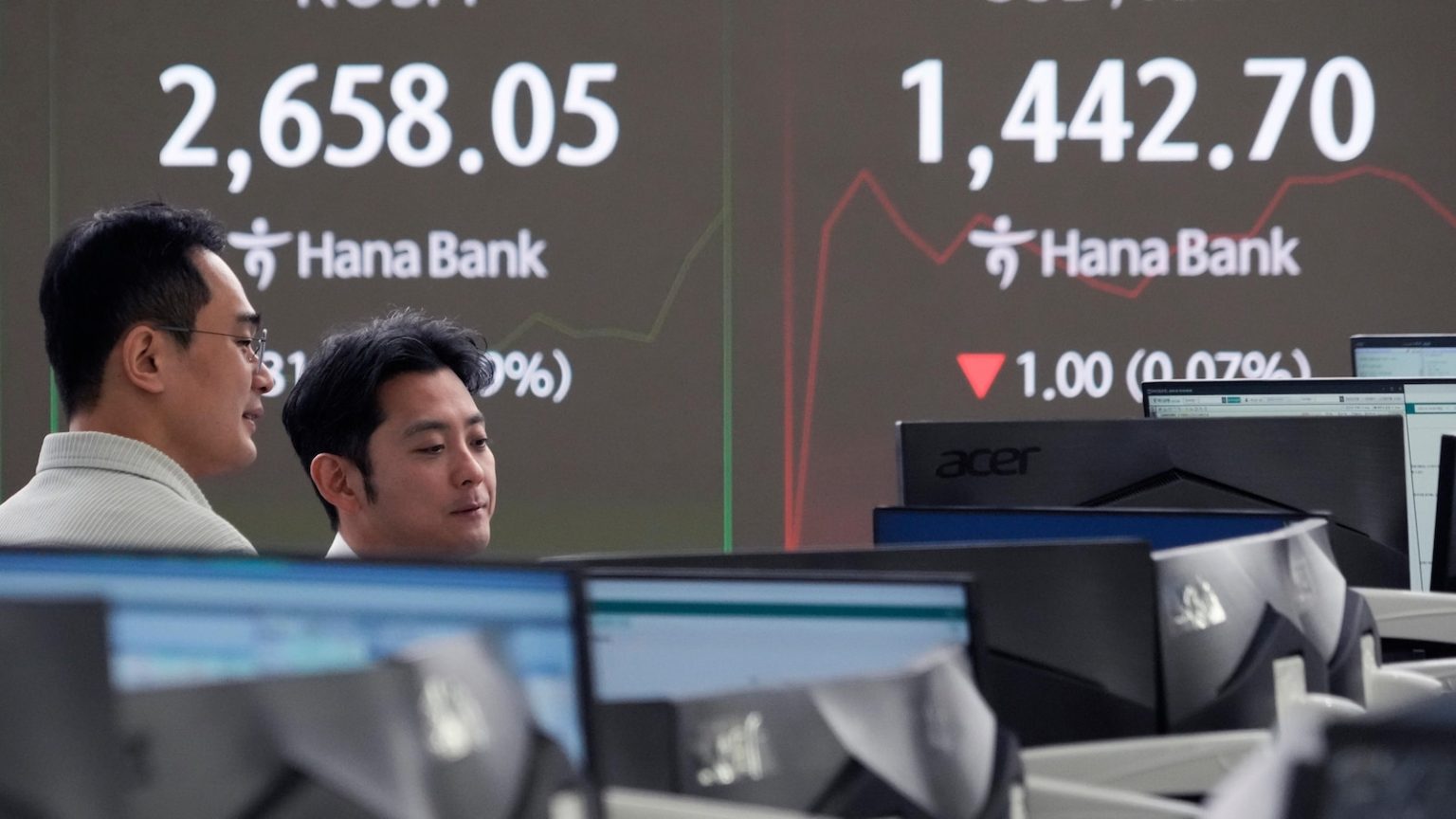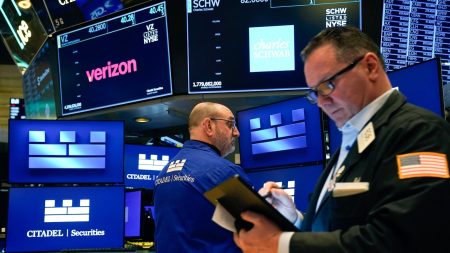Asian Markets Show Mixed Performance Amidst Global Uncertainty
The Asian stock market landscape presented a mixed picture on Wednesday, reflecting the broader uncertainties of the global economy. While some indices saw modest gains, others dipped slightly, as investors grappled with the implications of U.S.-China trade tensions, technological competition, and geopolitical developments. The Hang Seng Index in Hong Kong fell 0.14% to close at 22,944.24, while the Shanghai Composite in mainland China bucked the trend, rising 0.81% to finish at 3,351.54. These movements highlighted the delicate balance between optimism and caution that has characterized the region’s markets in recent weeks.
Chinese Tech Stocks Face a Reality Check After Brief Rally
Chinese technology stocks, which had experienced a brief rally earlier in the week, faced a correction on Wednesday as investors took profits and reassessed their positions. Alibaba, one of the region’s tech giants, saw its Hong Kong-listed shares drop 1.74%, while search engine titan Baidu fell 2.05% after reporting a 2% year-over-year decline in its fourth-quarter revenue. The intensifying competition in China’s artificial intelligence sector, coupled with broader market jitters, weighed heavily on these stocks. Tencent, the Chinese gaming and social media behemoth, also saw its shares slip 1.13%, and Meituan, an online services firm, declined 3.01%. The sell-off in Chinese tech stocks underscored the fragility of the recent market rebound and the ongoing challenges faced by these companies.
Trump’s Tariff Threats Cast a Shadow Over Japanese Markets
Meanwhile, Japan’s Nikkei 225 dipped 0.27% to 39,164.61, as investors reacted nervously to U.S. President Donald Trump’s latest tariff threats. Trump’s proposal to impose a 25% tariff on car imports, should it be implemented, could have severe repercussions for Japan’s export-reliant economy. Automakers Toyota and Honda were among the hardest-hit stocks, as the specter of higher tariffs on their exports to the U.S. raised concerns about their profitability and global competitiveness. The threat of tariffs also comes at a time when Japan is already navigating a slowdown in its manufacturing sector, further complicating the outlook for the country’s economy. These developments served as a stark reminder of the interconnected nature of global trade and the potential consequences of protectionist policies.
Europe’s Markets Reflect Global Sentiment
In Europe, early trading was similarly mixed, with indices reflecting the broader global sentiment. France’s CAC 40 edged down 0.20%, while Germany’s DAX remained largely unchanged. Britain’s FTSE 100 also dipped 0.21%, as investors in Europe appeared to adopt a wait-and-see approach amid the uncertainties swirling across the globe. The euro, which has been sensitive to shifts in European sentiment, weakened slightly against the U.S. dollar, trading at $1.0426 compared to $1.0446 in the previous session. Analysts noted that the euro’s performance could face further pressure as the U.S. adopts a more transactional approach to its relations with European NATO allies, potentially undermining confidence in the single currency.
U.S. Markets Defy Global Worries, Reach New Heights
In contrast to the subdued performance in many Asian and European markets, U.S. stocks continued to push higher, with the S&P 500 inching up 0.2% to set a new record. The benchmark index closed just above its all-time closing high, reflecting the resilience of the U.S. equity market despite global trade tensions and economic uncertainty. The Dow Jones Industrial Average also added 10 points, or less than 0.1%, while the Nasdaq composite rose 0.1%. These gains were supported by a combination of strong corporate earnings, optimism about the U.S. economy, and the Federal Reserve’s dovish monetary policy stance. Energy stocks were particularly buoyant, as benchmark U.S. crude rose 70 cents to $72.53 a barrel, and Brent crude, the international standard, climbed 60 cents to $76.44 a barrel.
Global Markets Navigate a Complex Landscape
As global markets navigate this complex landscape, the interplay between trade tensions, technological competition, and geopolitical developments will likely remain a key driver of market sentiment. The sell-off in Chinese tech stocks and the weakness in Japanese and European markets despite the strength in U.S. equities highlight the divergent trends shaping the global economy. For investors, this environment underscores the importance of staying vigilant and adaptable, as the balance between risk and reward continues to shift in response to evolving macroeconomic conditions. The coming weeks and months will likely provide further clarity on whether the current rebound in Asian markets is sustainable or whether the challenges facing the region’s economies will once again come to the fore.















